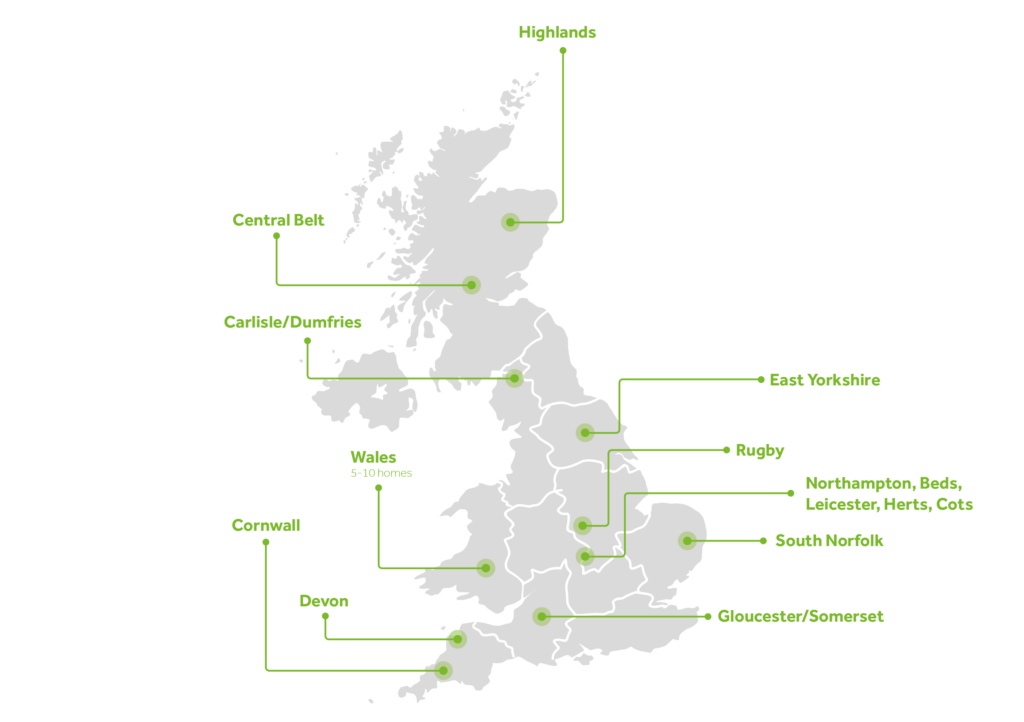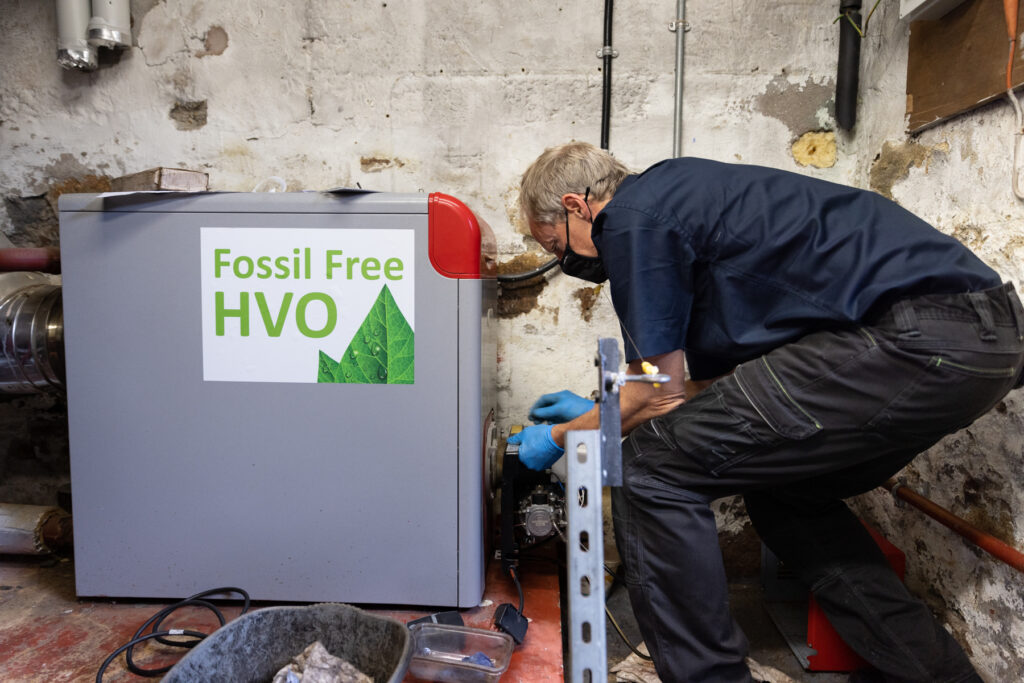Cornish village offers a blueprint for rural decarbonisation
A pioneering new project, converting a rural coastal village in Cornwall’s heating to run off Hydrotreated Vegetable Oil (HVO), has shown how renewable liquid fuels can offer a low cost, undisruptive and simple pathway for hundreds of thousands of rural homes to decarbonise their heating systems.
Over the course of 18 months, 17 homes as well as the local church and school, in the village of Kehelland, participated in a scheme run by industry trade bodies UKIFDA and OFTEC, alongside UKIFDA member Mitchell & Webber, to convert their kerosene heating oil-using boilers to use HVO. The Kehelland demonstration was part of a larger project covering 150 premises across the UK.
OFTEC and UKIFDA CEOs Paul Rose and Ken Cronin said the demonstrator shows “there is an alternative way forward for millions of off grid residents who can neither afford nor want to install a heat pump. This report shows there is a clear blueprint for these households to decarbonise their home heating.”
The Kehelland project, which can be replicated in buildings from Land’s End to John O’Groats, shows there is a practical way forward for millions of people living in off-gas grid properties to transition to renewable liquid fuels. The key findings of the project are:
- The upfront cost of converting the oil boiler to run on HVO was just £500 per property.
- The emissions from the properties were calculated as c88% reduced compared to kerosene.
- Only minor modifications to the heating system were required, conversion took just an hour per property and could be done as part of the annual service.
- The report also found that the equivalent capital costs of installing an air source heat pump with all the necessary retrofitting and heating system changes would have cost the Kehelland residents an average of £22,000 per property.
For the Kehelland experience to become a reality for millions more off grid residents, OFTEC and UKIFDA are calling for the UK Government to make two straightforward policy changes. Both could be made now, by amending the Energy Bill, as it completes its legislative stages in Parliament:
- Create a Renewable Liquid Heating Fuel Obligation (RLHFO) which would mirror, for home heating, the current provisions within the Renewable Transport Fuel Obligation (RTFO), which creates a price reduction for HVO to end users of vehicles, mobile machinery and aircraft; and
- Bring the fuel duty rate of HVO for heating in line with that of kerosene heating oil, as the cost to the consumer of HVO is currently over twice that of kerosene heating oil. This change would be cost neutral for the Government.
The latest OFTEC/UKIFDA data also highlights that the global production of HVO is increasing rapidly, with more than enough supply to cater for UK home heating demand.
Under current Government proposals, residents in off gas grid properties who rely on heating oil will be subject to a ban from 2026 on new and replacement fossil fuel appliances. In most cases, they will be expected to install a heat pump. The Kehelland demonstrator highlights there is an alternative for these properties which achieves significant emission reductions.
The findings are backed up by a recent survey of 1,500 households that use oil heating across the UK which found that 96% of respondents want to decide which green heating system they install, rather than the Government. It also found that 89% would prefer to convert their existing boiler to run on renewable liquid fuel.

The Chief Executives of OFTEC and UKIFDA, Paul Rose and Ken Cronin, went on to say:
“The Kehelland model proves there is space in our country’s low-carbon future for a wide variety of solutions, from heat pumps to HVO. However, we would like to see a recognition from the Government that a heat pump-first approach removes choice, adds cost and will leave rural communities disadvantaged. Decarbonisation can be achieved more quickly, and in a fairer and more equitable manner, simply by giving consumers the power to choose.”
The Rt Hon George Eustice MP, the constituency MP for Kehelland, added:
“It is vital that we look to new, greener technologies to heat our homes if we are going to be able to stay on track to hit net-zero by 2050, but this is a challenge in rural areas, which often rely on oil boilers. Finding a way to allow them to convert their boilers at reasonable cost to a fuel with a lower carbon footprint may well be part of the solution in the medium term. So I’m very pleased to see that my constituency is leading the way with this nationally-leading trial of HVO.”
Kehelland resident and participant in the trial, Dave Biggs, said:
“HVO is a great option for our home and we’re so pleased we made the switch – we’re saving nearly five metric tonnes of carbon every year as a result! We wanted to reduce our carbon emissions but the cost of installing a heat pump would have been very high for us. The simple switch in fuel was so easy.”



